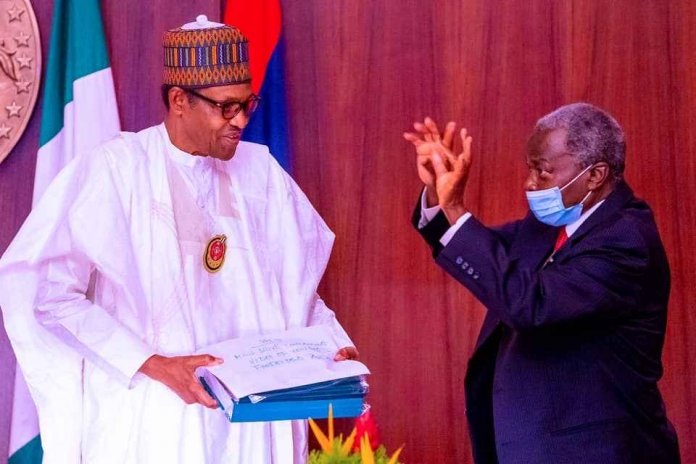There are indications that the Presidency has begun the process of getting a new Chairman for the Economic and Financial Crimes Commission (EFCC), following the outcome of Justice Ayo Salami’s panel’s investigation which recommended the sack of suspended Acting Chairman Ibrahim Magu.
A source within the Presidency affirmed that President Muhammadu Buhari is searching outside the Nigeria Police for Magu’s successor, in line with the recommendation of the panel to the President.
The source attested that a team would be set up in the coming days to zero in on the candidate capable of fulfilling the President’s aspiration of a corruption-free EFCC.
The source also confirmed that “sleaze and abuse of office allegations against Magu, a commissioner of police, were overwhelming” and is likely to be prosecuted.
The panel recommends that the new EFCC chairman be appointed in an interim position for a period of two years.
In a way that suggested that the report might have nailed Magu, Salami, according to a statement by Presidential spokesman, Femi Adesina, advised Buhari to consider appointing the next Chairman of EFCC from other law enforcement or security agencies, as well as core staff of the EFCC, as provided in the EFCC Establishment Act of 2004.
Salami said: “Your Excellency, permit me to say that four successive chairmen of the EFCC from inception have been drawn from the police. Therefore, in appointing a new chairman of EFCC, consideration should be given to candidates from other law enforcement or security agencies and qualified core staff of EFCC as provided in the Economic and Financial Crimes Commission (Establishment Act 2004).
“It is also important to point out that at the moment, 970 policemen (114 drivers, 641 mobile policemen and 215 operations), are on secondment in the EFCC.
“Therefore, an exit plan for the disengagement of the police and other personnel within two years from now should be considered. This will address the issue of non-promotion of core staff for over nine years.
“Your Excellency, our thinking here is that whoever you are appointing other than a core EFCC staff, should be in a transitional capacity of two years during which period, the arrangement would be made for the appointment of any of the core staff who has been commended by National Crime Agency, UK and other international law enforcement for their professionalism.”
Salami thanked the president for giving members of the commission an opportunity to serve.













